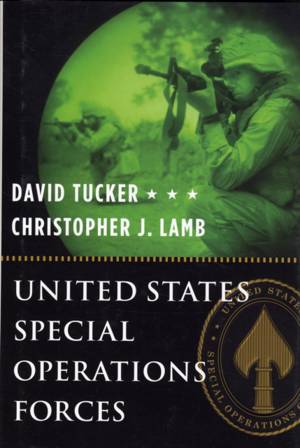
- Retrait gratuit dans votre magasin Club
- 7.000.000 titres dans notre catalogue
- Payer en toute sécurité
- Toujours un magasin près de chez vous
- Retrait gratuit dans votre magasin Club
- 7.000.0000 titres dans notre catalogue
- Payer en toute sécurité
- Toujours un magasin près de chez vous
110,45 €
+ 220 points
Description
In October and November of 2001, small numbers of soldiers from the Army Special Forces entered Afghanistan, linked up with elements of the Northern Alliance (an assortment of Afghanis opposed to the Taliban), and, in a remarkably short period of time, destroyed the Taliban regime. Trained to work with indigenous forces and personnel like the Northern Alliance, these soldiers, sometimes riding on horseback, combined modern military technology with ancient techniques of central Asian warfare in what was later described as "the first cavalry charge of the twenty-first century."
In this engaging book, two national security experts and Department of Defense insiders put the exploits of America's special operation forces in historical and strategic context. David Tucker and Christopher J. Lamb offer an incisive overview of America's turbulent experience with special operations. Using in-depth interviews with special operators at the forefront of the current war on terrorism and providing a detailed account of how they are selected and trained, the authors illustrate the diversity of modern special operations forces and the strategic value of their unique attributes. From the first chapter, this book builds toward a set of recommendations for reforms that would allow special operations forces to make a greater contribution to the war on terrorism and play a more strategic role in safeguarding the nation's security. Along the way, the authors explain why special operations forces are: -Distinguished by characteristics not equally valued by their own leadership-Strategically crucial because of two mutually supporting but undeniably distinct sets of capabilities not found in conventional forces
-Not to be confused with the CIA and so-called paramilitary forces, nor with the Marines and other elite forces
-Unable to learn from the 1993 failed intervention in Somalia and the national-oversight issues it revealed
-Better integrated into the nation's military strategy and operations than ever before but confused about their core missions in the war on terror
-Not "transformed" for future challenges as many assert but rather in need of organizational reforms to realize their strategic potential Despite longstanding and growing public fascination with special operators, these individuals and the organizations that employ them are little understood. With this book, Tucker and Lamb dispel common misconceptions and offer a penetrating analysis of how these unique and valuable forces can be employed to even better effect in the future.
Spécifications
Parties prenantes
- Auteur(s) :
- Editeur:
Contenu
- Nombre de pages :
- 312
- Langue:
- Anglais
Caractéristiques
- EAN:
- 9780231131902
- Date de parution :
- 04-09-07
- Format:
- Livre relié
- Format numérique:
- Genaaid
- Dimensions :
- 167 mm x 232 mm
- Poids :
- 557 g

Les avis
Nous publions uniquement les avis qui respectent les conditions requises. Consultez nos conditions pour les avis.






